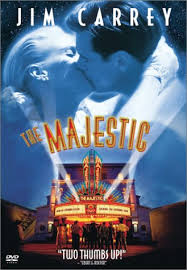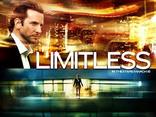Using Movies about the Brain in the Classroom
While popular movies were designed for entertainment, they can be a great addition to learning about the brain and brain disorders. Movies can be used to illustrate both good and bad examples of how brain disorders and special abilities are manifested. One suggestion for selecting movies for use in your class is to look through our list of movies and read the descriptions and reviews. Since the movies vary in terms of MPAA rating and suitability in the classroom, you can also search the reviews by age and category of disorder. See below for specific Assignments and Activities.
Recommended Movies for use in the Classroom
The following movies are some of our top picks for good examples of the brain issues they are intending to portray
They are also generally rated as entertaining/interesting by students.
Amnesia Movies
Memento: best portrayal of the feeling of anterograde amnesia. Good to watch after learning about Amnesia Cases.
Finding Nemo: best portrayal of a minor character with anterograde amnesia -Dory (for young kids)
The Vow: best portrayal of retrograde amnesia. This movie is based on a real-life story.
Autism Spectrum Movies
Temple Grandin: best biopic for understanding how a woman with ASD learned language, thinks and views the world.
Adam, Story of Luke, My name is Khan: All three deal with relationship issues of young men with ASD
Brain Injury Movies
The Lookout: for good examples of symptoms experienced by a teen with brain injury.
Brain Tumor Movies
The Music Never Stopped: Based on an unusual actual case from Oliver Sachs
Dementia Movies
Still Alice: for portrayal of Early Alzheimer's disease from the point of view of the woman afflicted.
Based on a book written by a neuroscientist.
A Song for Martin, Away from Her, Iris: for portrayal of dementia in older people.
Sleep/Dreaming/Consciousness
Sleepwalk with Me: for portrayal of Rem Behavior Disorder played by a comedian who suffers from the problem.
Inception: for providing food for thought to discuss aspects of dreaming. A student favorite.
Limitless: a good movie for discussion of cognitive enhancing drugs.
Stroke
Amour: for portrayal of stroke in an older woman.
Tourette's Syndrome
Front of the Class: for a family friendly, inspirational movie based on true life story.
Other Neurological Disorders
Theory of Everything: Biopic depicting ALS and the life of Stephen Hawking
They are also generally rated as entertaining/interesting by students.
Amnesia Movies
Memento: best portrayal of the feeling of anterograde amnesia. Good to watch after learning about Amnesia Cases.
Finding Nemo: best portrayal of a minor character with anterograde amnesia -Dory (for young kids)
The Vow: best portrayal of retrograde amnesia. This movie is based on a real-life story.
Autism Spectrum Movies
Temple Grandin: best biopic for understanding how a woman with ASD learned language, thinks and views the world.
Adam, Story of Luke, My name is Khan: All three deal with relationship issues of young men with ASD
Brain Injury Movies
The Lookout: for good examples of symptoms experienced by a teen with brain injury.
Brain Tumor Movies
The Music Never Stopped: Based on an unusual actual case from Oliver Sachs
Dementia Movies
Still Alice: for portrayal of Early Alzheimer's disease from the point of view of the woman afflicted.
Based on a book written by a neuroscientist.
A Song for Martin, Away from Her, Iris: for portrayal of dementia in older people.
Sleep/Dreaming/Consciousness
Sleepwalk with Me: for portrayal of Rem Behavior Disorder played by a comedian who suffers from the problem.
Inception: for providing food for thought to discuss aspects of dreaming. A student favorite.
Limitless: a good movie for discussion of cognitive enhancing drugs.
Stroke
Amour: for portrayal of stroke in an older woman.
Tourette's Syndrome
Front of the Class: for a family friendly, inspirational movie based on true life story.
Other Neurological Disorders
Theory of Everything: Biopic depicting ALS and the life of Stephen Hawking
Assignments and Activities
|
What's wrong with this picture?: The Majestic: Individual or small group movie watching and critiquing assignment.
Individuals or groups watch the movie to look for accuracies and inaccuracies in memory and amnesia portrayal. Knowledge needed is a background on the behavioral symptoms of neurological amnesia. For resources on neurological amnesia click here. Teachers who want the answer key, please contact us with your name and the school (city and state) where you teach. Level: College
| |||||||
|
Compare Two movies:
Individual or small group movie watching and critiquing assignment. Students pick 2 movies on one topic in neuropsychology in order to compare and contrast how a disorder or issue is dealt with in a fictional account. Level: High School or College
| |||||||





